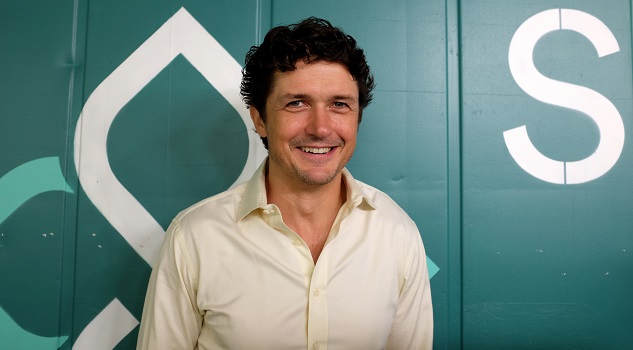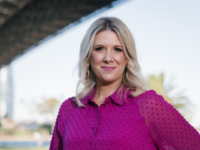This week we chat to Hugh McGilligan, founder of Australia’s first commercial vertical farm. Sprout Stack provides fresh produce from a near closed-loop system, using no chemicals. Each of its shipping containers can produce the equivalent to about one hectare of traditional farmland, meaning it’s possible to grow large quantities of fresh produce within the city fringe and deliver this to people’s plates within 24 hours from harvest.
ISB: What inspired you to bring the concept of a vertical farm to Australia through Sprout Stack?
HM: Sprout Stack is Australia’s only commercial scale vertical farm. We started it because Australia has a lot of urban residents who are underserved by the variety, quality and cost of produce they are offered. The case for vertical farming/controlled environment agriculture has already been made and broadly adopted around the world. Growing some types of food for immediate consumption, closer to its customers simply makes sense, logically nutritionally, and environmentally. Something like vertical farming has to be the way a large number of people in the world will eat in fairly short order. Regardless of which version of vertical farming wins out, we’re going to have to get a lot smarter and more efficient about the resources we use to produce food.
ISB: And what are the advantages of vertical farming that have helped Sprout Stack grow as an agtech start-up?
HM: Primarily, we’re focused on producing a great product. We strive for flavour and freshness above all. On average, our produce is in store within 16 hours of harvest. The fact that we grow out of an innovative, proprietary system is a nice-to-know for most customers. Their primary concern is for the flavour and freshness of our salads. However, for investors, we’re also a unique story – at least in Australia. Investors understand the future of a substantial part of agriculture has to be more efficient, more sustainable and produced closer to the markets they serve. It’s just common sense!
ISB: What was the biggest challenge you faced in getting the enterprise off the ground?
HM: The fact that we’re in the vanguard of the category means that there’s no roadmap or blueprint for us to follow. We’ve had to cut our own path and have had to follow our instinct a lot of the time. 90 per cent of the time experience and instinct gives us the right answer, but that 10 per cent failure rate is costly, frustrating and exhausting.
ISB: How do you go about ensuring you are supporting both independent retailers and rural communities?
HM: Sprout Stack is proudly based on Sydney’s Northern Beaches. We work hard to be good neighbours and want to make a positive contribution to the local community. That means dedicating a portion of our harvest to local retail partners, such as Manly Food Co-op and Harbord Growers. We are committed to work only with independent retailers such as our longest standing partner, Harris Farm Markets. We also hire employees and contractors from the local community wherever possible. We’ve partnered with Nova Employment to provide employment to those from disadvantaged communities.
ISB: I understand sustainability is very important to you, how do you ensure Sprout Stack’s environmental footprint is kept to a minimum?
HM: We’re definitely not where we want to be yet, but our commitment to the triple bottom line means that all of our decisions are influenced by being good stewards of the earth (and better corporate citizens within our community). Because we capture and recycle all the water used in our farms we only use between two and five per cent of the water of traditional farming for the same output. We use 10 to 20 per cent of the nutrients of a traditional farm. We’re “zero-till” production – foregoing the three to four 4tonnes of carbon per hectare that is released through ploughing. We also spare the soil degradation. Our hydroponic solution is recycled within the farm, so it can’t pollute water courses, streams, rivers or the ocean. Our near-zero food miles not only result in a fresher, more nutritious product but also forgo the massive carbon footprint of transporting produce across the country.
ISB: And, finally, what is the number one lesson you’ve learnt on this journey you’d share with others looking to start their own business?
HM: You’ve just got to do it! Absolutely do your due diligence and figure out what’s the best way to start the business, but don’t sit on the sidelines wringing your hands. The time is never going to be perfect, there’ll always be doubts and grey areas. Ultimately, you’ve got to back yourself and go after it hard. If you don’t, you’re always going to left wondering “what if…”.
















